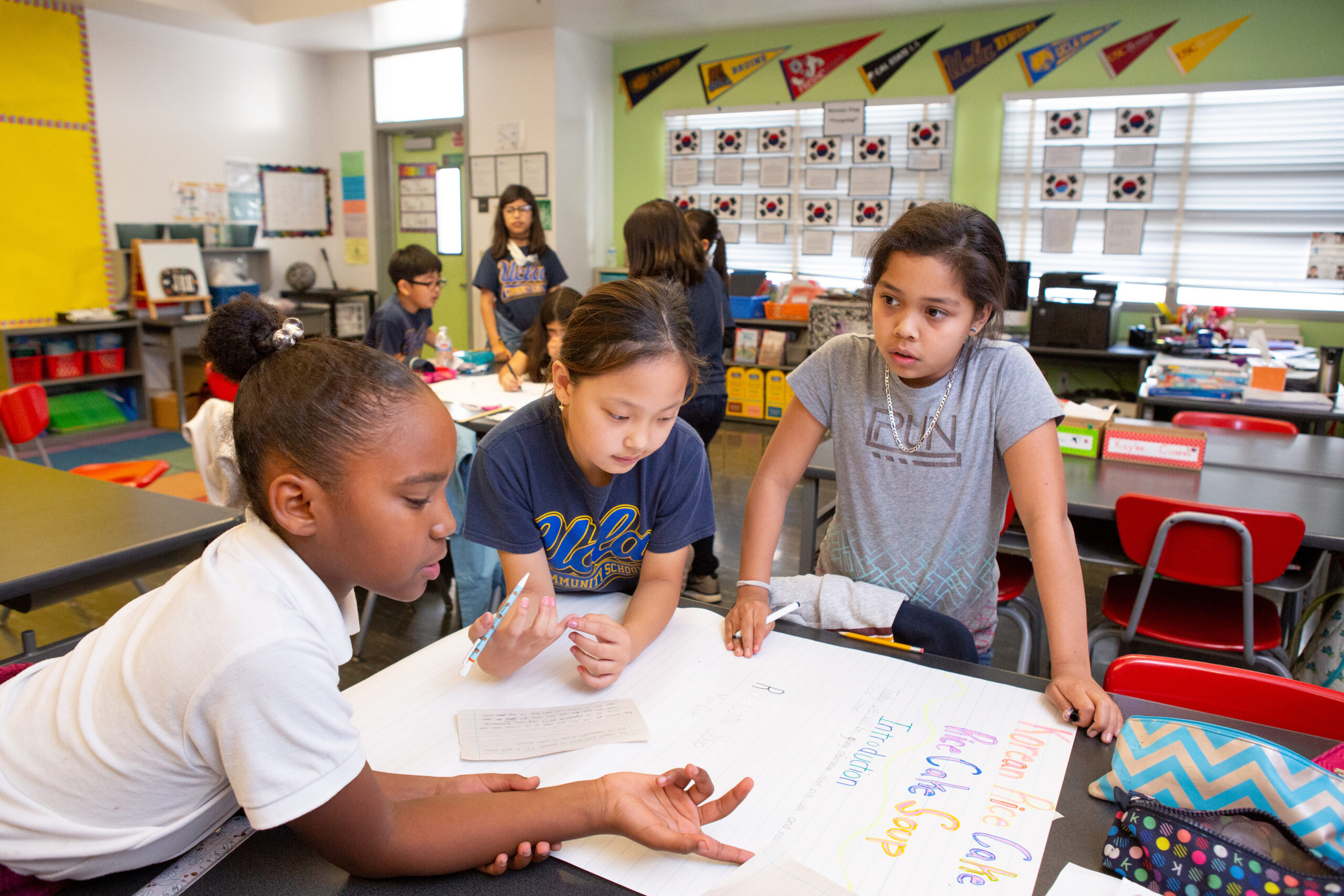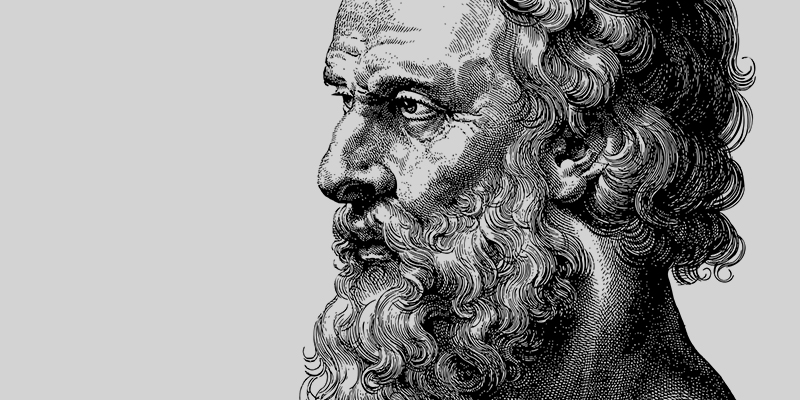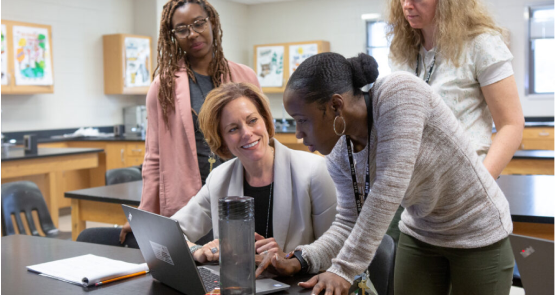8. Philosophy and Critical Thinking: The Value of Asking the Deep Questions
Although we’ve emphasized in this guide that critical thinking skills cannot be taught in isolation from subject matter, there is a great deal of critical thinking to be learned from a subject that studies thinking itself: namely, philosophy. Philosophy and critical thinking are a natural pair.
American schools, unlike schools in some other parts of the world, have been hesitant to adopt philosophy courses into the curriculum. (One exception is the International Baccalaureate curriculum which includes a course called “Theory of Knowledge.”) One reason for this is that philosophical texts are often thought of as too dense and difficult for primary and secondary school students.
Philosophy does, of course, involve a corpus of often quite difficult texts from different traditions, but philosophical reasoning itself is not at all outside the reach of even young children. Indeed, children show an interest in philosophical questions at a very young age.

And older students, especially those who might be demotivated or struggle in other subjects, can be stimulated by the more open-ended, argumentative, and profound nature of philosophical thinking. Philosophical thinking also has a unique, interdisciplinary character that makes it ideal for helping students see connections across disciplines.

Philosophy for Kids
Philosophical reasoning is not something foreign to kids that needs to be forced on them from the outside. They all naturally ask philosophical questions like:
- “How can we be sure that everything is not a dream?”
- “When Dad tells me to be good, what does he mean?”
- “Why is time so slow sometimes?”
Philosophy for kids programs and courses can help encourage this inquisitiveness and help kids to learn to channel it into a reflective frame of mind.
Many philosophy for kids programs attempt to initiate this type of thinking through narrative. For example, the Institute for the Advancement of Philosophy for Children (IAPC) at Montclair State University, which goes back to the work of Matthew Lipman in the 1970s, uses stories to stimulate discussion of a philosophical topic. Children then discuss the topic in a “community of inquiry” where the teacher acts as a facilitator, who “both guides the children and models for them — by asking open-ended questions, posing alternative views, seeking clarification, questioning reasons, and by demonstrating self-correcting behavior.”
Other philosophy for kids initiatives use other stimuli, like visuals, thought experiments, or simply probing questions. But they share the goal of building a “community of inquiry,” where students get a chance to discuss and refine their ideas with one another, undertake to understand outside perspectives, and consider big questions outside the scope of more standard learning.
There is evidence that these kinds of philosophical activities can have a positive impact on student achievement. The Education Endowment Foundation in the UK found in an initial study of Philosophy for Children for 8-10 year olds that the program was promising: students made gains in math and reading compared to those who did not participate.

Teaching Philosophy to Middle and High School Students
As they get older, students are ready for more complex philosophical reasoning as well as instruction in formal logic. Philosophy can, moreover, be a driver of interdisciplinarity during middle and high school, since reflecting on the state of knowledge in other disciplines is one of the core tasks of philosophy.

Idea for Discussion: What Is Knowledge?
Philosophy is concerned, more than many other disciplines, with definitions. It takes concepts that we might take for granted, like knowledge, and problematizes them, by asking questions like:
- How do we know something?
- Are there general principles for what counts as knowledge or does it depend on the discipline?
- How do we come to know things in science? In our daily lives? In religion or aesthetic experiences?
It’s easy for these conversations to become too abstract so it’s best to start with something concrete. Break students up and assign them each a particular subject matter: art, science, religion, and morality, for example. Ask them to define knowledge in each of these domains?
- How do you know a piece of artwork is good?
- How is a scientific theory known to be true?
- How do people know a religious belief they have is true?
- How do we know the difference between right and wrong moral actions?
Ask students to come up with a definition. As they discuss, circulate to make sure students are using examples from their own study and experiences and trying to develop a list of criteria for knowledge in these different domains.
Bring the class back together to evaluate the definitions. Ask students from other groups to scrutinize each others’ definitions. The teacher might raise certain objections to try and deepen discussion:
- In science, for example, a group might say a theory is known to be true because it is verified in experimental results. But Isaac Newton’s physics were eventually shown to be inaccurate in certain cases. Is it right to say that before Albert Einstein came along, with a new, more experimentally accurate theory, people knew Newton’s theory was true? Or did they only think they knew?
Then, ask students to reflect on whether there is anything shared among these different kinds of “knowledge.” Questions that might come up include:
- Are there any general shared principles of inquiry common to these different domains: for example, experimentation or learning from one’s predecessors?
- Is it just happenstance that we happen to apply the words “know” and “knowledge” to these very different activities?
- Can we draw a clean distinction between practical knowledge (“knowing how”) and theoretical knowledge (“knowing that”)?
Sources and Resources
Goering, Sara, Nicholas J. Shudak, and Thomas E. Wartenberg, eds (2013). Philosophy in schools: An introduction for philosophers and teachers. Routledge.
Collection of essays on different aspects of pre-college philosophy education.
Lone, J. M. & Burroughs, M.D. (2016). Philosophy in education: Questioning and dialogue in schools. Rowman & Littlefield.
Argument for introducing philosophy in the K-12 context, with lesson ideas for elementary, middle, and high school.
Millett, S., & Tapper, A. (2012). Benefits of collaborative philosophical inquiry in schools. Educational Philosophy and Theory, 44(5), 546-567.
Overview on research into philosophy for kids and collaborative philosophical inquiry more broadly.
Pritchard, Michael (2018). Philosophy for children. The Stanford Encyclopedia of Philosophy.
Encyclopedia entry on the history of rationale for philosophy for children. Also offers details on different approaches and more resources.



